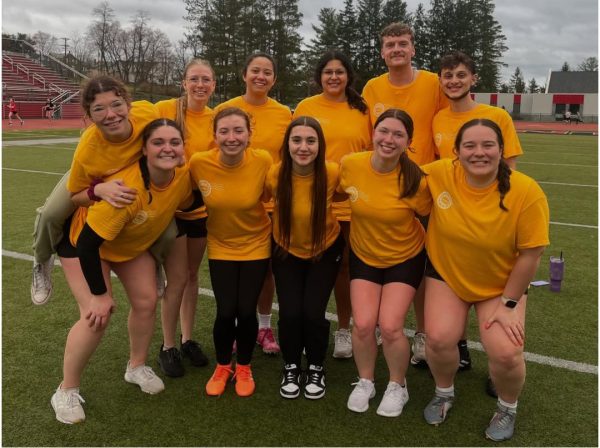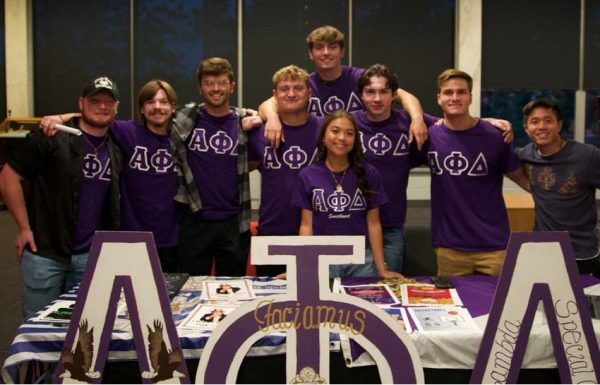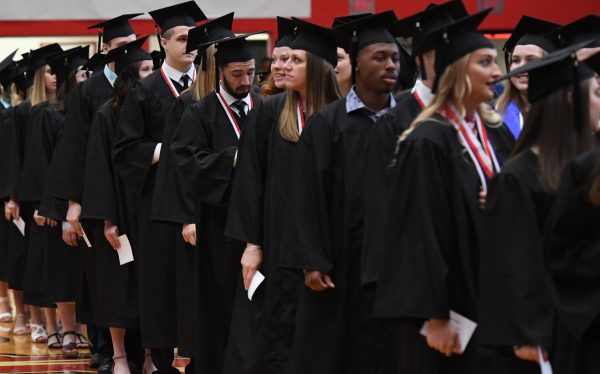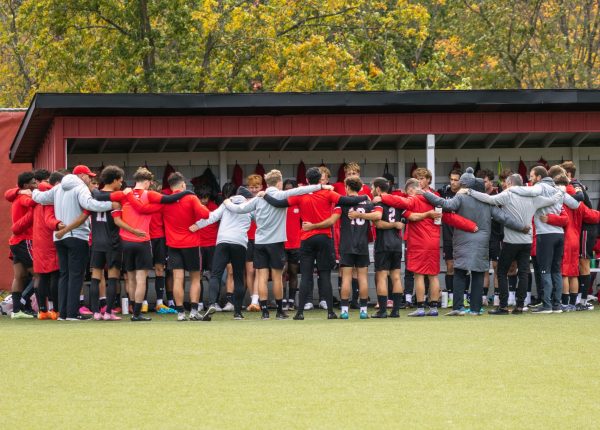Rush Season Wraps Up
Rush season at SFU wrapped up this week, culminating in “Bid Day” – a daylong event in which Greek organizations introduce their new members to the Greek Life community, starting them on the path to becoming brothers and sisters themselves.
Continuing the tradition set last spring, this semester’s Bid Day had a Harry Potter theme. The new Greek Life members received an envelope inviting them to attend Hogwarts School of Witchcraft and Wizardry, a.k.a. Dani Lynn Howard’s school of New Member Orientation (NMO), the five-week process of learning what it means to be Greek, both in general and at SFU.
Dani Lynn, SFU Assistant Director of Student Engagement and Leadership Development and a sister of Zeta Tau Alpha, sets the calendar for all Greek Life events, including approving rushes. She determines the timeline of the NMO process, starting with the Great Greek Meet and Greet and ending in Initiation.
Howard said the Initiation is always the Thursday before Homecoming in the fall and before Saint Patrick’s Day in the spring. Greeks have approximately two weeks to hold rushes, which are recruitment events, for potential new members (PNMs) to get to know the organizations.
Each organization typically holds at least three rushes during this period, and the themes and events vary from organization to organization. Jordan Gibson, recruitment chair for Psi Upsilon fraternity, says that he and his committee plan rushes that will appeal to the type of potentials they are interested in, and, at rushes, they look for the qualities that their organization stands for.
Rushing can be an intimidating time, but Gibson encourages students to “see it all,” meaning that they should get to know every organization in order to find the best fit for them. He said that Greek Life as a whole is one big family.
Kayla Ali, a junior Phi Delta Kappa sister, remembers the rush period as a stressful time. Ultimately, however, she said that rushing allowed her to make connections with people that feel like family.
“It’s about becoming a member of something greater on campus,” said Ali. “Greek life as a whole.”
Gibson and Ali both joined SFU Greek Life in the spring of 2014, when the University still followed the old bid system, in which each potential new member (PNM) submitted a “blue card” to the organization of their choosing; if the organization wanted them to join, they got a “bid.”
As of fall 2014, the SFU sororities switched to a multi-tier system, developed on this campus by Dani Lynn, following her time as Panhellenic president at IUP. This system allows PNMs to “rank” their chosen organizations from one to three, with the first name on their list being their favored group. These lists are manually cross-referenced with the organization’s lists of who they would potentially extend a bid to, and, in this way, people are fitted with their organization according to both preference lists.
The change was made in favor of this system in order to have safety nets in place to ensure that PNMS have the opportunity to “find their home.” This new bid system takes some of the pressure off PNMs, since they can relax, knowing that they have better odds of getting a bid and joining Greek Life, without having to wait another semester if they did not get into their first-choice organization.
Freshman Jamie Houston said that her rushing experience was a fun one and the overall process was “really enjoyable.” In her opinion, the best kinds of rushes are the ones in which you can really talk to the organization members, and get to know about their group, but also about the workings of Greek Life as a whole.
SFU was the first Catholic institution in the United States to have a residential fraternity system and has been recognized twice as number one in the Northeast for academic excellence, as measured by the Gamma Sigma Alpha society, which measures the gap between Greek and non-Greek GPAs.
Bobby Anderson, SFU’s Director of Student Engagement and Leadership Development, attributes the success of the school’s Greek Life program to honoring the past and maintaining traditions, while adapting to changes in technology and society at large.









